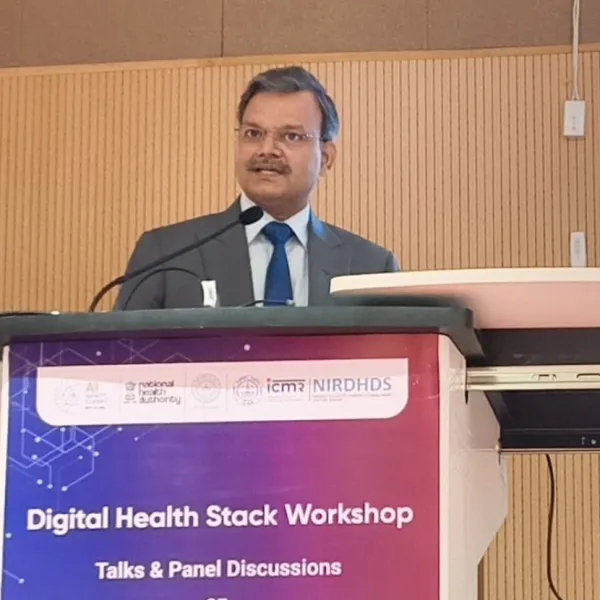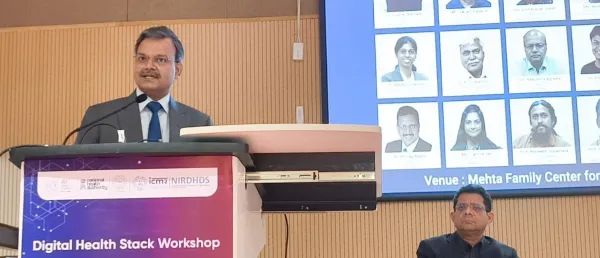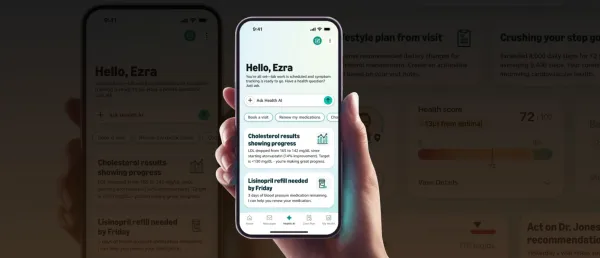IIT Madras Researchers Develop Biosensor for Pre-eclampsia Detection

This technology could transform how pre-eclampsia is diagnosed and managed by providing an accessible, scalable solution for both high- and low-resource settings.
A multi-institute research team led by IIT Madras has developed a novel biosensor platform for the early detection of pre-eclampsia in pregnant women.
This new Point-of-Care (PoC) diagnostic technology promises a quick, affordable, and reliable alternative to current methods, making it more accessible, especially in resource-limited settings.
Simple, Cost-Effective Testing Solution
Pre-eclampsia (PE) is a serious pregnancy complication that poses significant risks to both maternal and fetal health. Traditional diagnostic methods are expensive, time-consuming, and require skilled personnel, limiting their availability, particularly in remote areas. The new biosensor, developed using fiber optics sensor technology, aims to provide an accessible and accurate solution for pre-eclampsia detection.
Prof. V.V. Raghavendra Sai from IIT Madras, a key research team member, explained, “Placental growth factor (PlGF) is an angiogenic blood biomarker used for pre-eclampsia diagnosis. Herein, we have established the Plasmonic Fiber Optic Absorbance Biosensor (P-FAB) technology for detecting PlGF at femtomolar levels using polymethyl methacrylate (PMMA)-based U-bent polymeric optical fiber (POF) sensor probes.”
The newly developed biosensor detects PlGF within 30 minutes, offering a rapid screening tool for pregnant women. This quick turnaround makes it especially beneficial for on-site diagnostics, potentially improving outcomes for both mothers and babies.
Improving Global Healthcare with Accessible Technology
The POF sensor technology is cost-effective and environmentally friendly, as it eliminates the need for harsh chemicals and uses recyclable materials. Clinical testing has confirmed its accuracy, reliability, and sensitivity, indicating its potential to help reduce global mortality and morbidity caused by pre-eclampsia.
Dr. Ratan Kumar Chaudhary, the study's first author, highlighted the broader potential of this technology, saying, “The P-FAB-based POF platform offers transformative technology for detecting pre-eclampsia and has potential applications for detecting other communicable and non-communicable diseases. This technology is simple, cost-effective, rapid, and requires only a small sample volume, making it ideal for use in resource-limited settings.”
Additionally, the biosensor platform has successfully passed critical validation stages and is progressing towards field deployment. This technology can potentially revolutionize the diagnosis and management of pre-eclampsia by offering an accessible and scalable solution suitable for both high- and low-resource settings.
Dr. Ramprasad Srinivasan from Sri Narayani Hospital & Research Centre highlighted the significance of early detection: “This test can identify PLGF as early as 11-13 weeks of gestation and classify women into high-risk and low-risk groups, allowing for timely interventions such as low-dose aspirin, which could reduce the incidence of pre-eclampsia.”
Stay tuned for more such updates on Digital Health News































